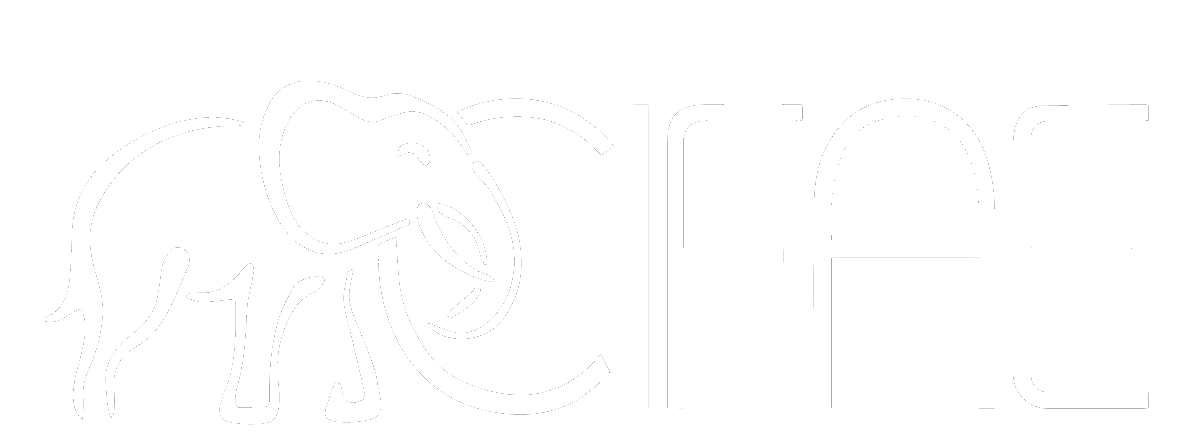“Go Pro Elephant” Campaign
Photo by Ron Chandler of two young male Borneo pygmy elephants, which are among the most endangered of all nonhuman animals due to palm oil.
MissioN
CIFAE is excited to launch our “Go Pro Elephant'' Campaign! This campaign focuses on our ability to create an impact and bring forth change on issues concerning both human and elephant dignity as affected by the palm oil industry. We hope to provide ways in which we can work toward a holistically sustainable network that can combat these issues and improve upon how we approach natural systems altogether. So, join us in raising awareness towards human and elephant dignity, and go pro elephant!
BACKGROUND
A large issue damaging both human and elephant survivability and dignity are the consequences prompted by the palm oil industry. Palm oil is cultivated from the fruit of the oil palm plant, Elaeis guineensis, and relies on two different methods for its harvest. Squeezing the fruit produces crude palm oil while crushing the fruit’s kernel creates palm kernel oil (WWF).
The oil palm plant is originally from West Africa (The Oil Palm), however, today it is mainly cultivated in Southeast Asia. In addition, countries such as Indonesia and Malaysia are responsible for the production of 84% of the world’s palm oil. Today, we are also seeing an increase in production within the South American countries of Columbia, Ecuador, and Guatemala (Green Palm).
Such high production of palm oil is due to its value as a preservative in many of the products we use. Many properties of palm oil make it useful for a variety of day-to-day items we use and consume. Some common items that employ palm oil include peanut butters, sweets, shampoos, deodorants, etc.
IMPACT
The palm oil industry's impact on environmental and human players is exceedingly devastating. The industry is responsible for deforestation and the loss of biodiversity in many forested areas. In just five years, 25 palm oil groups accounted for the loss of over 130,000 ha (321, 237 acres) of rainforest. In addition, 40% of deforestation occurred in Papua, Indonesia (Green Peace). Palm oil cultivation destroys the habitats of animals like the Orangutan, Sumatran Rhino, and Asian elephant. Other environmental concerns arising from palm oil production include its contribution to greenhouse gas emissions due to deforestation and exposure of carbon rich peat soils (WWF).
Likewise, our campaign is also concerned about how human dignity is affected by the actions and consequences taken up through the production of palm oil. The industry itself relies on the exploitation of workers and child labor practices. The working-wages of women are below minimum wage coupled with long work hours and the threat of a pay-cut. Children are also tasked with dangerous, physical work, taking time away from their education and placing them in dangerous situations. Along with children, the majority of palm oil laborers are expected to work under hazardous conditions without adequate safety equipment and in contact with damaging levels of pollutants. These conditions along with working long hours to meet inhumane goals facilitate injury and result in the overall exploitation of workers (Amnesty International).
Some of the top manufacturers using palm oil in their products include Colgate-Palmolive, General Mills, Hershey, Kellogg’s, Kraft Heinz, L’Oreal, Mars, Mondelez, Nestlé, PepsiCo, Reckitt Benckiser and Unilever. These companies all have a severe impact through the use of palm oil in their products on the wellbeing of animals and humans.
CALL TO ACTION
By choosing to unite with our campaign and “Go Pro Elephant,” you are choosing to align yourself with the elephants and humans affected by the palm oil industry. CIFAE encourages our supporters to stop using palm oil and make conscious choices.
Know your ingredients! “palm oil” is not always listed as such. It is often labeled using different names that can be easily mistaken for something else. These include:
Vegetable Oil, Vegetable Fat, Palm Kernel, Palm Kernel Oil, Palm Fruit Oil, Palmate, Palmitate, Palmolein, Glyceryl, Stearate, Stearic Acid, Elaeis Guineensis, Palmitic Acid, Palm Stearine, Palmitoyl Oxostearamide, Palmitoyl Tetrapeptide-3, Sodium Laureth Sulfate, Sodium Lauryl Sulfate, Sodium Kernelate, Sodium Palm Kernelate, Sodium Lauryl Lactylate/Sulphate, Hyrated Palm Glycerides, Etyl Palmitate, Octyl Palmitate, Palmityl Alcohol
You can also use the app “Palm Smart” to easily scan items at the store to see if they contain any form of palm oil. Make conscious choices and be mindful of your actions. Across the globe, we each consume an average of 8 kg (about 18 lbs) of palm oil a year, and there are almost 8 billion individuals on the planet (The Guardian)! Any changes you make, even the smallest, will have great impact and your actions will improve the dignity of humans and elephants.
Social Media
Follow us on our Instagram, Facebook, LinkedIn, etc. to support us in the fight to stop palm oil and learn how you can help. Use the hashtags #GoProElephant and #CIFAE to stay in touch and support our campaign!

